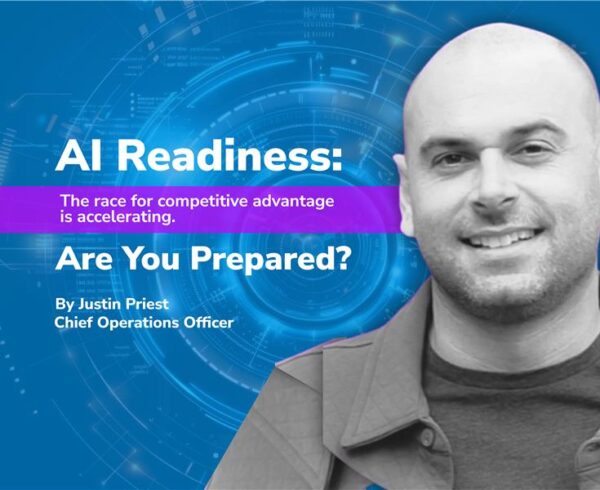In today’s digital age, cloud computing has become an integral part of business operations, providing scalability, flexibility, and cost-efficiency. As organizations increasingly adopt cloud technologies, the demand for skilled cloud specialists continues to rise. Hiring the right cloud specialist can significantly impact your organization’s ability to leverage cloud services effectively. This guide provides insights and strategies for hiring top-tier cloud specialists to meet your organization’s needs.
UNDERSTANDING THE ROLE OF A CLOUD SPECIALIST
Cloud specialists are professionals with expertise in designing, implementing, and managing cloud infrastructure and services. Their responsibilities typically include:
-
- Assessing and identifying cloud solutions that best meet organizational needs
-
- Designing and deploying scalable and secure cloud architectures
-
- Managing and optimizing cloud resources to ensure cost-efficiency
-
- Implementing security measures to protect cloud data and services
-
- Monitoring cloud environments and responding to incidents
KEY SKILLS AND QUALIFICATIONS
When hiring a cloud specialist, consider the following essential skills and qualifications:
1. CLOUD PLATFORM EXPERTISE: Proficiency in major cloud platforms such as Amazon Web Services (AWS), Microsoft Azure, and Google Cloud Platform (GCP) is crucial. Look for certifications like AWS Certified Solutions Architect, Microsoft Certified: Azure Solutions Architect Expert, or Google Professional Cloud Architect.
2. TECHNICAL SKILLS: Strong knowledge of cloud computing concepts, including Infrastructure as a Service (IaaS), Platform as a Service (PaaS), and Software as a Service (SaaS). Familiarity with containerization technologies like Docker and Kubernetes is also valuable.
3. SECURITY KNOWLEDGE: Understanding of cloud security best practices and tools, including identity and access management (IAM), encryption, and compliance frameworks like GDPR and HIPAA.
4. DEVOPS EXPERIENCE: Experience with DevOps practices and tools such as CI/CD pipelines, Jenkins, Ansible, and Terraform can be advantageous for integrating cloud operations with development processes.
5. PROBLEM-SOLVING ABILITIES: Strong analytical and troubleshooting skills to address cloud-related issues promptly and effectively.
6. COMMUNICATION SKILLS: Ability to communicate complex technical concepts to non-technical stakeholders and collaborate with cross-functional teams.
STEPS TO HIRING A CLOUD SPECIALIST
1. DEFINE YOUR NEEDS: Clearly outline the specific cloud services and platforms your organization uses or plans to use. Determine the scope of the role and the expertise required to meet your business objectives.
2. CRAFT A DETAILED JOB DESCRIPTION: Create a comprehensive job description that highlights the required skills, qualifications, and responsibilities. Be specific about the cloud platforms and technologies your organization uses. Example of a Cloud Specialist Job Description.
3. SOURCE CANDIDATES: Utilize various channels to source potential candidates. Job boards like Indeed and LinkedIn. are excellent starting points. Additionally, consider specialized IT recruitment agencies like ConsulteNet!
4. EVALUATE TECHNICAL SKILLS: During the interview process, assess candidates’ technical skills through practical tests or coding challenges. Platforms like HackerRank and LeetCode can help evaluate their problem-solving abilities.
5. ASSESS CULTURAL FIT: Ensure the candidate aligns with your organization’s culture and values. Consider their communication skills, teamwork abilities, and adaptability to your work environment.
6. CHECK REFERENCES: Contact previous employers or colleagues to verify the candidate’s experience and performance in similar roles. This can provide valuable insights into their capabilities and work ethic.
7. OFFER COMPETITIVE COMPENSATION: Stay informed about industry standards for cloud specialist salaries and offer a competitive compensation package. Websites like Salary.com and Payscale can provide salary benchmarks.
ONBOARDING AND DEVELOPMENT
Once you’ve hired a cloud specialist, ensure a smooth onboarding process and provide opportunities for continuous learning and development:
-
- ORIENTATION AND TRAINING: Provide comprehensive orientation and training on your organization’s cloud infrastructure, tools, and processes. This helps new hires quickly acclimate to their role.
-
- FOSTER COLLABORATION: Promote collaboration between the cloud specialist and other teams, such as development, security, and operations, to ensure seamless integration of cloud services.
BUILDING A CLOUD-DRIVEN TEAM
Hiring the right cloud specialist is crucial for maximizing the benefits of cloud computing in your organization. By understanding the key skills and qualifications required, following a structured hiring process, and supporting continuous development, you can build a strong cloud team that drives innovation and efficiency. Embrace the cloud revolution and position your organization for success in the digital era.






